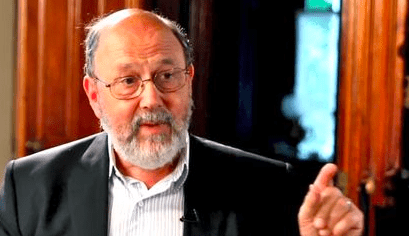 There is a rise of young (and not just young) theologians who don’t believe in the soul, who don’t believe the soul is immortal, who don’t believe the soul goes to be with God after death as it awaits reunion with the body at the resurrection. In essence, this view is non-dualistic and therefore teaches there is no “spiritual soul.” Two major proponents of this view are Nancey Murphy and Joel Green, both at Fuller Theological Seminary. Murphy’s a philosophical theologian and her work has been in philosophy, theology as well as neuroscience; Green’s a well-known New Testament scholar who has also done considerable work in neuroscience. Murphy’s book is called Bodies and Souls, or Spirited Bodies?, which argues for a nonreductive physicalism,” and Green’s book is called Body, Soul, and Human Life (we’ve discussed Green’s book at this blog). But neither of these two scholars denies the resurrection of eternal life or the kingdom of God; this debate is about human nature and whether we have two parts. They argue humans are complex physical organisms.
There is a rise of young (and not just young) theologians who don’t believe in the soul, who don’t believe the soul is immortal, who don’t believe the soul goes to be with God after death as it awaits reunion with the body at the resurrection. In essence, this view is non-dualistic and therefore teaches there is no “spiritual soul.” Two major proponents of this view are Nancey Murphy and Joel Green, both at Fuller Theological Seminary. Murphy’s a philosophical theologian and her work has been in philosophy, theology as well as neuroscience; Green’s a well-known New Testament scholar who has also done considerable work in neuroscience. Murphy’s book is called Bodies and Souls, or Spirited Bodies?, which argues for a nonreductive physicalism,” and Green’s book is called Body, Soul, and Human Life (we’ve discussed Green’s book at this blog). But neither of these two scholars denies the resurrection of eternal life or the kingdom of God; this debate is about human nature and whether we have two parts. They argue humans are complex physical organisms.
Do you think we have a “soul” or that we are “ensouled bodies”? Can humans communicate with God without the body? Do you think God-as-spirit is a defeater for this new view?
This, of course, raises an immediate spectre for many: What happens at death? Do we cease existence awaiting the resurrection? Is Aunt Thelma with the Lord or not? And this immediately leads to the classic Christian position — a kind of immortal soul inherent to humans, a kind of dualistic existence (body and soul/spirit/mind), and a kind of Platonic-influenced view of human nature. Plato looks over this whole discussion — at least that is the view of many.
The principal texts in the New Testament include:
Matt. 10:28 Do not be afraid of those who kill the body but cannot kill the soul. Rather, be afraid of the Onea who can destroy both soul and body in hell.
Luke 16:22 “The time came when the beggar died and the angels carried him to Abraham’s side. The rich man also died and was buried. 23 In Hades, where he was in torment, he looked up and saw Abraham far away, with Lazarus by his side.
Luke 23:43 Jesus answered him, “Truly I tell you, today you will be with me in paradise.”
2Cor. 5:6 Therefore we are always confident and know that as long as we are at home in the body we are away from the Lord. 7 For we live by faith, not by sight. 8 We are confident, I say, and would prefer to be away from the body and at home with the Lord.
Matthew Levering, in his fine book Jesus and the Demise of Death, argues that Aquinas, who did believe in a spiritual soul, got this one right; so he offers a response to the Murphy-Green line of thinking. (Levering does not discuss the fine small book by Kevin Corcoran, Rethinking Human Nature.) Here are some of the major counter arguments to this new trend, but even if these counters need to be considered, to the degree traditional acts of the soul are now found in the brain and neural acts, evidence for a soul will be hard to find:
1. If God is spirit, or if God is non-bodied, then relationship to God is diminished if there is no soul.
2. If God is spirit, and if God is mind, then mind/spirit/soul can exist without a body.
3. Some of the NT texts seem easier to read as disembodied consciousness and connection to God.
4. Death would have to be a temporary form of annihilation.











